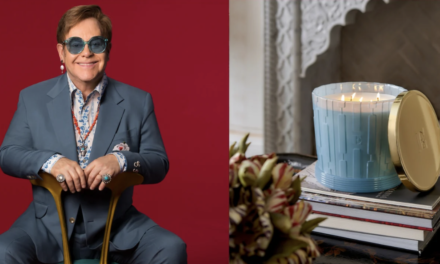
5 Telltale Signs a Luxury Brand Lacks Emotional Intelligence… and Why Consumers Care

How branding EQ beats IQ in driving budget-boosting brand perceptions & authentic storytelling for the ultimate competitive edge
A 2023 Emotional Intelligence Market study citing “heavy growth” of $49.93 billion USD by 2027 exemplifies the extent to which mastering “EQ” versus IQ is taking brands to exciting new levels of success … and why not embracing EQ can result in extreme opportunity loss or, far worse, be an outright brand buster. This as today’s highly discriminating and demanding luxury marketplace is seemingly rife with substitutable solutions. Modern day savvy shoppers nearly always have alternate options—and they know it.
Although there is tremendous buzz advocating the power and efficacy of emotional intelligence in modern luxury marketing and branding endeavors, there is little consistency and clarity on fundamental best practices and methodologies that can serve as a baseline catalyst. Fundamentals that, when further honed and refined, can result in highly sophisticated and emotive brand building that wholly resonates with the intended audiences and compels them into the desired action.
As importantly, that same clarity is needed on things to avoid—pitfalls that can impede progress as a luxury brand seeks to engage and truly connect with the hearts and minds of their intended audience—not just their wallets. Doing so breeds the kind of loyalty that can sustain consumer relationships for a lifetime.
Below, Martha Marchesi, CEO of JK Design—a full-service creative agency with a powerhouse roster that includes Tiffany & Co., Johnson & Johnson, Philips, Priceline, Prudential, ADP and more—provides insights on five telltale signs that a luxury brand may lack emotional intelligence and how to ensure EQ is employed effectively in marketing strategies:
- Lack of empathy in messaging: An emotionally intelligent brand demonstrates empathy by understanding and addressing the emotions, concerns, and needs of its customers. A brand that lacks empathy may come across as cold, indifferent or out-of-touch in its messaging, which often creates a disconnect between the brand and its audience. This can not only lead to a weakened brand image, but also outright customer dissatisfaction. Egregious and extreme cases of brands being emotionally “tone dead” can cause a brand to be publicly “flamed” on social media and elsewhere.One great way to exhibit empathy in brand messaging is by addressing common and specific customer pain points like that related to productivity, financial, processes and support. Another approach is to use storytelling that highlights relatable customer experiences like that related to cost savings, productivity, efficiencies and customer support. These types of tactics can create a more deeply engrained bond with the audience. It’s also imperative to ensure that empathy is conveyed in an authentic, believable way that will resonate with the intended audience. One easy way to achieve this is for public communications from company executives, or that represent the brand as a whole, to display vulnerability, which fosters relatability and trust.In the post-COVID marketplace, there has been a profound and pivotal cultural shift toward empathy and engagement that is requiring business leaders, and companies at large, enhance these kinds of EQ skillsets to meet new expectations. Another effective method to demonstrate empathy is to utilize genuine customer testimonials, stories and case studies that articulate those first-hand brand experiences.
- One-size-fits-all communication: Emotionally intelligent brands tailor their messaging to different customer segments. Brands that rely on generic, cookie-cutter and impersonal communication might not resonate with, or address, their audience’s specific needs. EQ enlightened brands consider more targeted messaging. As one example, if your brand serves both young professionals and retirees, then entirely separate, targeted messaging and visuals for each of those groups is in order. But, try to dig deeper and discern what else beyond demographics makes those in your customer base distinct such that you can use language and imagery that will resonate on a more individual level. Of course, even before crafting audience-specific messaging, a brand must first wholly understand what makes each segment tick. What are their values? What inspires them to action? What notoriously upsets them? A fully formed profile of each customer category must be developed and continuously honed to ensure your brand’s messaging keeps pace with ever-evolving sensibilities and cultural shifts.
- Overemphasis on features, not benefits: Emotionally intelligent brands understand that customers care more about the benefits of a product or service—the WIIFM (what’s in it for me) factor—then its nuts and bolts features. Brands that focus too heavily on product attributes and technical specifications should shift their focus to how those features will improve customers’ lives. A great way to so this is by using clear and concise benefit statements like that related to a product’s usability, safety, environmental responsibility, affordability, durability and more. Or, that a service will save you time, make you more efficient and productive, enhance the quality of your work or make an experience more enjoyable. Cite as many user benefits as possible to make an unequivocal case as to why your solution is THE solution. Another tried and true approach is creating relatable use-case scenarios that detail how clients or customers have specifically benefitted by working with your brand. All the better if this use-case can include metrics data and analytics. By leading with the various ways the product or service can truly impact and enhance the lives of its users, your brand can forge stronger emotional connections than by simply touting features and attributes, alone.
- Disregard for customer feedback: Emotionally intelligent brands actively seek, value and actually utilize customer feedback in sustained efforts to improve their products and services, and fine-tune future messaging. Brands that dismiss or outright ignore customer feedback may struggle to develop a loyal customer base. Endeavor to prioritize incorporating customer insights into brand strategy. Do this by conducting regular informal polls, more formal customer surveys, actively monitoring social media channels or even hosting focus groups.Customer feedback, however positive or negative it may be, is a valuable and powerful market research. However, beyond just collecting and cataloguing the data, EQ-driven brands take concerted action on each viable data point—to include sharing those insights with all applicable internal teams and other appropriate stakeholders to ensure the collective has an accurate “temperature” and cohesive understanding of the organization’s KPIs at any given time.
- Inability to convey brand values: Emotionally intelligent brands embrace, and effectively communicate, their core values and beliefs. Their figuratively wear their brand values as a badge of honor, and let those ideals guide the way as the company’s marketing communications North Star. For example, brands can easily showcase their commitment to sustainability through overt green initiatives, which customers are made aware of through public communications and discourse. Of course, efforts to demonstratively exhibit how values are being upheld can be detailing those efforts a brand’s own web site, but should endeavor to go beyond by including citations in public relations, social media, on and offline advertising, direct email and newsletters, signage and other MarComm efforts. Or, some highly EQ-equipped brands exemplify their values by actively participating in charitable events that align. While the expression certainly need not be overtly impassioned or “over the top,” brands that fail to express their values or purpose in some identifiable way may need to reassess how they communicate their mission. This recalibration can foster a stronger emotional connection with prospects and customers. A good first step in this direction is to clearly define and articulate your brand values internally. From there, systematically and concertedly integrate those values across all marketing channels with consistency, ensuring a cohesive and authentic message is conveyed to your audience at every possible touchpoint.
Emotional intelligence is key to any marketing strategy. It should be upheld as your brand’s North Star from which to craft your story, develop inspired positioning and brand architecture, empower your sales force, create engaging content, collaborate with your creative team, transform the typical e-commerce experience into a story-driven customer journey, measure your results and so much more.
By making impactful and authentic emotional connections with your audience and continuously fine tuning that approach, you can drive meaningful results—the kind that creates even unforeseen advantages and helps you not just achieve, but exceed, your goals.
Source:


































